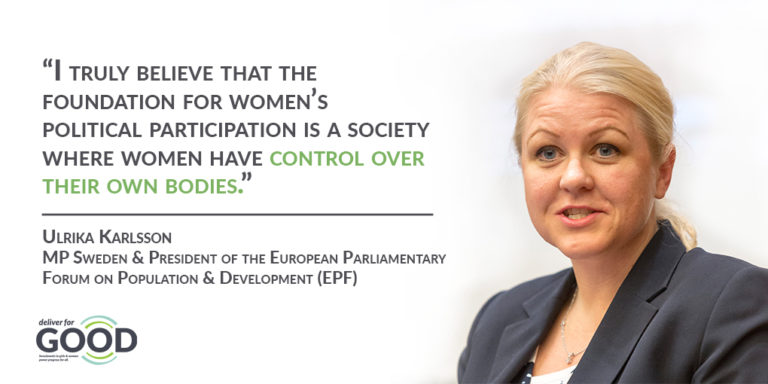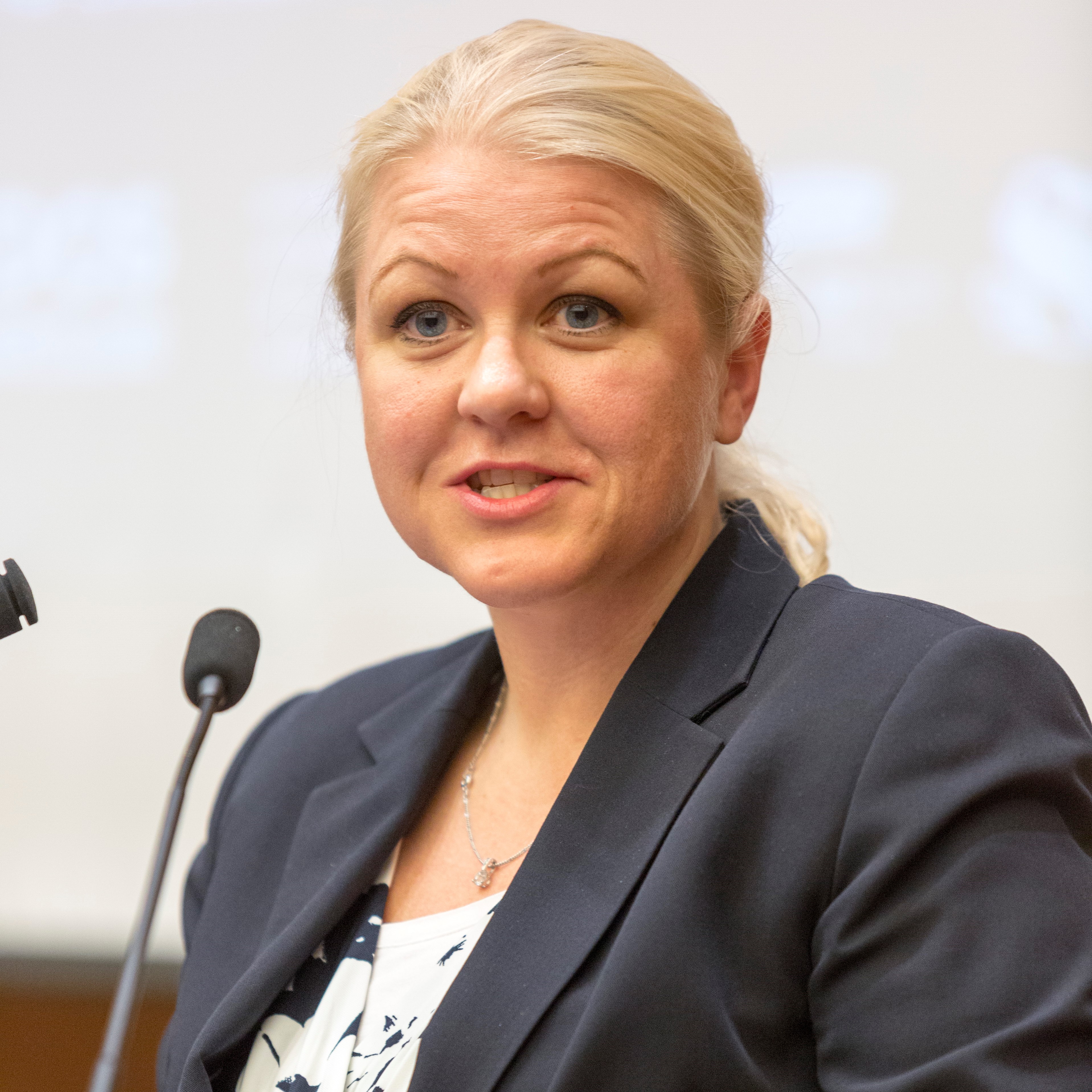
Women’s political participation is crucial, not just for gender equality but for the flourishing of societies. As a female politician in Sweden I have seen this first hand.
A strong commitment to gender equality runs right through Swedish society. This includes the political landscape, where over 40% of parliamentarians are women. For many years now there has been a consensus in Sweden that people should not be discriminated against on the basis of their gender. Providing women and girls with the same opportunities for education, employment and power that men have is not only the right thing to do but it also makes sense for a country’s well-being. No economy or society can reach its potential if half of its population is being held back. We have seen enough progress on gender equality and women’s political participation to know the rewards it brings for the whole society.
Reaching this point has been the culmination of a series of decisions taken against the grain — against the social, political, cultural and religious institutions. But it did not happen overnight. And it took brave women and men to make that change possible.
Is Sweden perfect? Not at all. In recent months the enormous momentum generated by the #MeToo movement in our country shows that there remains significant work to be done towards gender equality. This discussion has been wide ranging and a major aspect has focused on women in politics, under the hashtag #maktenskorridorer (In the corridors of power). Many have pointed out, for example, that Sweden has never had a female Prime Minister.
I truly believe that the foundation for women’s political participation is a society where women have control over their own bodies. You will find strong female political participation where you have good access to comprehensive sexuality education, access to modern contraceptives, skilled birth attendants and access to safe and legal abortion.
This belief has informed my work as President of the European Parliamentary Forum on Population & Development (EPF) and forms the core of the Stockholm International Parliamentarians’ Declaration. This document, agreed to in 2014 by 260 members of Parliaments (MPs) from 134 countries, has provided a blueprint for the work of hundreds of parliamentarians around the world for making their societies more equal and places of opportunity for women.
I believe that female members of parliaments have an obligation to ensure that ladders are in place for the next generation of female leaders to climb up; both in our own countries and around the world. We can do this by working to have good gender equality legislation and policies in place and ensuring that they are properly implemented and monitored. But we must also go beyond this and actively mentor young women with political ambitions.
“I truly believe that the foundation for women’s political participation is a society where women have control over their own bodies.
You will find strong female political participation where you have good access to comprehensive sexuality education, access to modern contraceptives, skilled birth attendants and access to safe and legal abortion.”
Women in political leadership today undoubtedly face more obstacles than their male counterparts and have had to fight hard for their position. The world saw this clearly in the 2016 US presidential election and I can also cite numerous examples from my own career in Sweden. Many talented women of my generation did not achieve their ambitions for leadership, often because they were worn down and overlooked due to hostility and prejudice. I and the 259 signatories of the Stockholm Declaration have committed to working towards a world where this is no longer the case.
